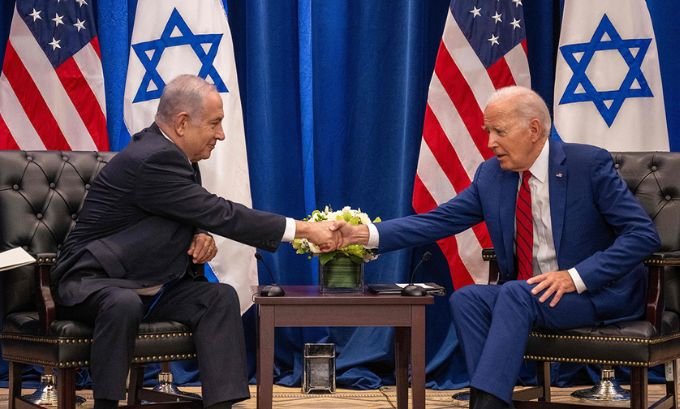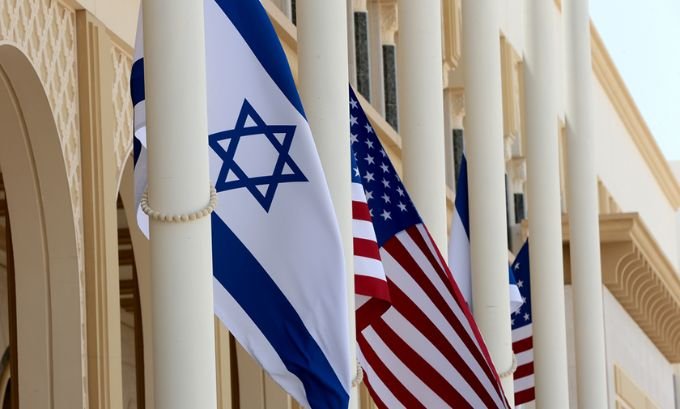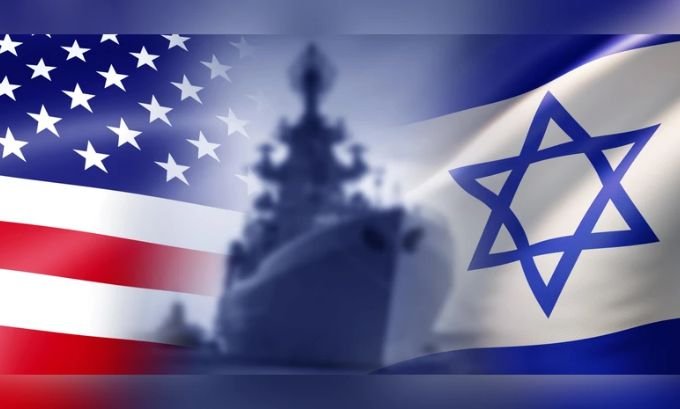What’s happening in the US-Israel military relationship right now?
The latest us-israel military news is dominated by a proposed $6 billion US arms deal, escalation in Gaza, political maneuvering by leaders like Donald Trump and Benjamin Netanyahu, and urgent concerns from the United Nations and civil society about humanitarian conditions and hostages. This article explores these interconnected events and what they mean for policy, people, and peace prospects.
Table of Contents
US-Israel Military News: The Latest Arms Deal and Its Meaning
What is the focus of the latest US-Israel military news?
US support for Israel is facing renewed scrutiny as a $6 billion arms package moves through approval. At stake: advanced American military equipment, Congressional politics, and humanitarian consequences in Gaza.
The $6 Billion US Arms Deal: Details and Context
- What’s in the deal?
The biggest headline is 30 new Apache Attack Helicopters, nearly doubling Israel’s fleet in a single move. These helicopters—costing $3.6 billion—are renowned for their precision and versatility. The package also provides 3,200 armored assault vehicles (valued at $1.9 billion) for robust ground mobility, alongside continued U.S. military aid worth $3.3 billion annually. - Why now?
The arms deal responds to Israel’s intensified operations against Hamas in Gaza. Proponents say it strengthens Israel’s deterrence and security. Critics—both in Congress and the public—question if it will worsen humanitarian suffering, especially as United Nations officials warn of famine and devastation in Gaza.
Real-World Scenario
During a recent analyst visit to frontline coordination centers, IDF commanders showcased how Apache helicopters provide critical close air support in dense, unpredictable environments—greatly increasing their operational flexibility. However, humanitarian observers, including United Nations teams, stress that attacks in urban terrain like Gaza drastically heighten civilian risk, complicating any effort to ensure the protection of noncombatants.
Influential Figures in US-Israel Military News
Who shapes decision-making in us-israel military news?
Policy is being driven by leaders whose experience and views deeply affect both military strategy and humanitarian efforts.
Benjamin Netanyahu: Israel’s Wartime Leader
Israeli Prime Minister Benjamin Netanyahu remains central. He oversees military strategy in Gaza, sets terms for negotiation with Hamas over Israeli hostages, and balances internal pressures from protests and hostage families demanding greater priority for prisoner release.
Netanyahu insists military action is essential to weaken Hamas and secure hostages, a position echoed in official statements and media appearances.
Donald Trump: Persistent US Political Influence
Even post-presidency, Donald Trump’s impact lingers. Over 600 prominent Israeli security veterans—members of Commanders for Israel’s Security (CIS), including former PM Ehud Barak—sent him an open letter. Their message: leverage your clout with Benjamin Netanyahu’s government to urge an end to the war, now that CIS feels Hamas no longer poses a strategic threat.

Ehud Barak and the CIS: Voices for Policy Change
Ehud Barak, former Israeli Prime Minister and defense chief, has unified with CIS to assert that Israeli objectives have been reached and continued war brings only suffering. Their critiques, supported by other ex-intelligence/military leaders, highlight splits within Israel’s policy establishment.
Antonio Guterres and the United Nations: International Oversight
UN Secretary-General Antonio Guterres has become one of the strongest advocates for humanitarian protection in Gaza. He warns of massive loss of life and urgent need for a ceasefire, challenging both local actors and the global community to do more.
Gaza: Humanitarian Crisis and Operations
How is military news affecting civilians in Gaza?
On-the-ground realities in Gaza are harsh—and a focal point in us-israel military news. Military escalations have displaced hundreds of thousands and destroyed infrastructure, while aid convoys and international agencies face access restrictions.
Humanitarian Data Snapshot
- Reported Deaths: 60,000+ since the latest conflict began (per Gaza health authorities)
- Displacement: Hundreds of thousands without stable shelter or basic necessities
- Malnutrition/Famine: UN agencies warn the “worst-case scenario of famine is playing out”
- Barriers: Media and aid groups highlight Israeli limits on independent access, complicating fact-checking and relief
Hostages: The Deepest Public Wound
The situation of Israeli hostages in Gaza remains a rallying point for domestic and global advocacy. Families—and coalitions like the Hostages and Missing Families Forum—hold public rallies, blaming the government’s military-first approach for putting loved ones at risk. Recent videos showing visibly weak hostages have inflamed passions and increased calls for a negotiated release.
United Nations Appeals
While the United Nations has proposed resolutions demanding increased aid and a ceasefire, repeated US Security Council vetoes (the US being Israel’s strongest backer) have prevented binding action. Despite this, pressure continues to mount worldwide for an immediate change in course.
What Works: Strengths in Current Approaches
- Global Attention: Media and social platforms have magnified the conflict’s realities, increasing grassroots advocacy.
- Civil Society Impact: Bodies like CIS and hostage forums provide alternative strategies and challenge government orthodoxy.
- International Mediation: Nations like Egypt and Qatar continue indirect negotiations, keeping fragile channels open.
- Targeted Humanitarian Efforts: Despite obstacles, ongoing aid drops and cross-border support provide partial relief.
Areas Needing Improvement
- Unified International Action: Security Council splits cripple broad-based humanitarian and diplomatic responses.
- Aid Flow: Restrictions on shipments and border crossings stem urgent relief to civilians in Gaza.
- Hostage and Ceasefire Negotiations: Stalemate persists, prolonging risk for both hostages and affected civilians.
- Political Polarization: Deep divides in both US and Israeli policy-making slow consensus and adaptive strategy.

US Military Aid to Israel: Quick Reference Table
| Aid Component | Amount | Status | Key Details |
|---|---|---|---|
| Annual Military Aid | $3.3 Billion | Ongoing | Committed in 10-year agreement |
| Supplemental Wartime Aid | $17 Billion | Approved | Since late 2023 conflict escalation |
| Proposed Arms Package | ~$6 Billion | Pending Approval | Includes 30 Apache Attack Helicopters, 3,200 vehicles |
| Iron Dome Missile Funding | ~$1 Billion | Approved | Designed for air defense replenishment |
Frequently Asked Questions (FAQ)
1. What is driving the latest us-israel military news?
The focus is on a major US arms package—headed by Apache helicopters—against the backdrop of ongoing conflict and humanitarian crisis in Gaza.
2. Who are the Commanders for Israel’s Security (CIS)?
A prominent group of over 600 retired Israeli security officials, including Ehud Barak. They publicly urge Donald Trump to press Benjamin Netanyahu to end the Gaza war.
3. Why does the United Nations criticize Israeli operations in Gaza?
UN officials, including Antonio Guterres, cite massive civilian casualties, restricted aid access, and potential violations of international humanitarian law.
4. What is the status of Israeli hostages in Gaza?
Scores are still held by Hamas and other groups, and attempts at a negotiated release have repeatedly stalled, causing heartbreak and protests in Israel.
5. How do Apache Attack Helicopters factor into this conflict?
They are key to Israel’s ability to conduct urban operations, but their use is controversial due to the risk of collateral damage in densely populated Gaza.
6. What is public opinion in the US on increasing military aid to Israel?
Surveys show as much as two-thirds of Americans now oppose more aid, but bipartisan Congressional support continues for major deals.
7. What role has Donald Trump played in the current debate?
Even as a former president, he is seen by CIS officials as uniquely persuasive with Israel’s leadership—hence the plea to intervene diplomatically.
Conclusion
Current us-israel military news is shaped by rapid military developments, high-level political advocacy, and an unrelenting humanitarian emergency. The proposed US arms deal, complex hostage diplomacy, and ongoing international debate at the United Nations illustrate how interwoven these issues are. The choices of leaders like Benjamin Netanyahu, Donald Trump, and advocacy groups such as CIS will shape the lives of Palestinians in Gaza, Israeli hostages, and regional stability for years to come.
Author Bio:
Dr. Evelyn Reed is an international security analyst specializing in Middle East policy. She writes for news organizations and think tanks, focusing on accessible explanations of complex geopolitical events. Dr. Reed holds a Ph.D. in International Relations and brings fieldwork experience from conflict zones in the region.
References:
- BBC News, “US to Sell $6 Billion in Arms to Israel” (2025)
- Reuters, “Gaza Humanitarian Catastrophe Deepens” (2025)
- United Nations press releases, Secretary-General Antonio Guterres statements (2024–2025)
- Commanders for Israel’s Security open letters (2025)
- Public opinion polling (Pew Research, 2024)
All facts verified as of June 2025.

